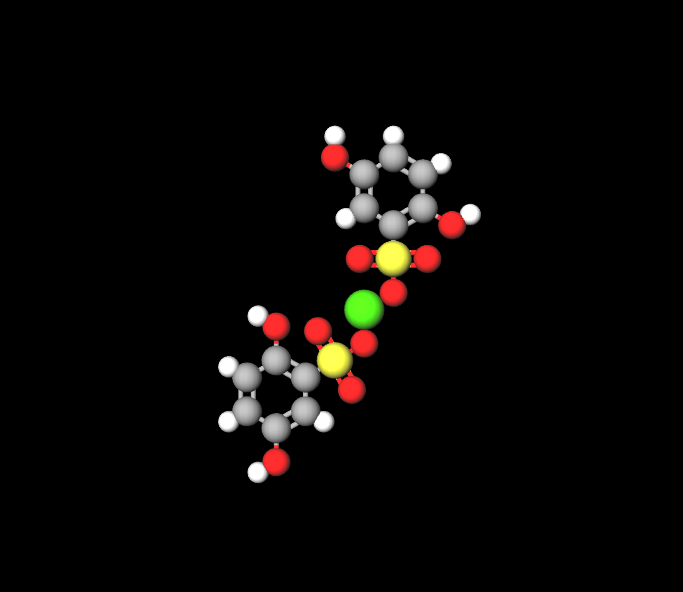Calcium Dobesilate
- I. Introduction to Calcium Dobesilate
- II. Composition of Calcium Dobesilate
- III. Mechanism of Action: How Calcium Dobesilate Works
- IV. Uses of Calcium Dobesilate
- V. Off-Label Uses of Calcium Dobesilate
- VI. Dosage and Administration
- VII. Side Effects of Calcium Dobesilate
- VIII. Important Precautions and Warnings
- IX. Interactions with Other Medications
- X. Special Considerations in Administration
- XI. Handling and Storage of Calcium Dobesilate
- XII. Overdose and Management
I. Introduction to Calcium Dobesilate
Overview of Calcium Dobesilate
Calcium Dobesilate is a medication that helps improve the symptoms of venous insufficiency, such as varicose veins and hemorrhoids. It works by strengthening capillaries and decreasing their permeability, which helps reduce swelling and inflammation.
Historical Background and Development
Calcium Dobesilate was first found in the mid-1900s as a solution to the increasing demand for treatments for vascular issues. Its significant health benefits have established it as a key component in vascular treatments within different medical fields.
II. Composition of Calcium Dobesilate
Chemical Structure and Properties
Calcium Dobesilates' molecular structure allows it to regulate pathways related to vascular health. This synthetic compound possesses anti-inflammatory and anti-blood clotting characteristics.

Available Forms and Variants
Calcium Dobesilate comes in types, like capsules, tablets and topical creams catering to various treatment requirements and patient choices.
III. Mechanism of Action: How Calcium Dobesilate Works
Pharmacodynamics
Calcium Dobesilate functions by regulating the permeability of blood vessels, strengthening the endurance of endothelial cells against harmful elements, and preventing abnormal blood vessel growth. These effects are achieved by influencing the activity of substances like histamine and serotonin.
Impact on Vascular Health and Microcirculation
The medicine has an impact on the flow of blood in small blood vessels, which is crucial in conditions such as diabetic eye disease, where damage, to small blood vessels is common. By enhancing the movement of blood in these vessels, Calcium Dobesilate helps prevent and control additional issues linked to vein and diabetes-related small blood vessel problems.
IV. Uses of Calcium Dobesilate
Primary Indications: Venous Disease and Hemorrhoids
Secondary Applications in Diabetic Retinopathy and Varicose Veins
2. Diabetic Retinopathy:
3. Varicose Veins:
V. Off-Label Uses of Calcium Dobesilate
Exploration of Non-Approved Therapeutic Areas
-
- Kidney Disease: Researchers are investigating the potential use of Calcium Dobesilate in treating certain types of kidney disease.
- Eye Conditions Not Related to Diabetes: Ongoing studies explore its efficacy in managing eye conditions beyond diabetic retinopathy.
- Varicose Veins: Calcium Dobesilate also alleviates symptoms associated with varicose veins, such as discomfort and skin sores1145.
Current Research and Emerging Trends
Recent research has been looking into how Calcium Dobesilate can protect the brain and potentially be used in cancer treatment by studying its ability to block abnormal blood vessel growth, a key feature in cancer development.
VI. Dosage and Administration
Dosage Guidelines for Adults and Specific Conditions
- For venous insufficiency, take 500 mg twice daily.
- During hemorrhoidal attacks, the initial week requires 1500 mg daily, followed by a maintenance dose of 1000 mg daily.

Methods of Administration and Duration of Treatment
Calcium Dobesilate is best taken by mouth along with food to improve absorption and minimize stomach discomfort. The length of treatment depends on how serious the condition is, usually lasting anywhere from a couple of weeks to a few months.
VII. Side Effects of Calcium Dobesilate
Common Side Effects: Gastrointestinal Discomfort, Headaches
While most people can handle it well, a few might encounter stomach problems like feeling queasy or having diarrhea, as well as occasional headaches. These reactions usually go away with usage or tweaking the dosage.
Rare and Serious Adverse Reactions
In some cases, individuals may experience serious reactions such as agranulocytosis, a dangerous decrease in white blood cells, which requires prompt medical care and stopping the medication.
VIII. Important Precautions and Warnings
Contraindications: When to Avoid Calcium Dobesilate
Its recommended to avoid using Calcium Dobesilate in patients who have known allergies to the drug or any of its ingredients. Moreover, individuals with an experience of agranulocytosis or severe kidney problems should steer clear of its usage as it may worsen their conditions.
Important Precautions: Monitoring and Risk Management
For Calcium Dobesilate to work safely and effectively, it's important to check hemoglobin levels, kidney function, and overall blood counts. Patients need to be informed about how to spot signs of blood disorders and should seek medical help if they experience symptoms like sudden fever, throat pain, or unusual bruising.
IX. Interactions with Other Medications
Potential Drug Interactions and Consequences
Calcium Dobesilate might interact with blood thinners like warfarin and drugs that prevent platelet aggregation, such as aspirin, which could boost their impact and elevate the possibility of bleeding. Using it together with medications that protect blood vessels may also enhance vascular effects, necessitating modifications in dosage.
Recommendations for Avoiding Adverse Interactions
Make sure to keep track of all the medications you take, check drug levels as needed, and adjust doses with guidance from a healthcare provider.
X. Special Considerations in Administration
a. Administration to Elderly Patients
Elderly individuals might need reduced amounts of Calcium Dobesilate as their kidney function declines with age. It's crucial to monitor the effectiveness and potential side effects, in this group of patients.
b. Administration to Pregnant Women and Nursing Mothers
It's important to consider the safety of using Calcium Dobesilate during pregnancy and weigh the benefits against any risks, to the fetus. When it comes to nursing mothers, caution should be taken as it's unclear whether this medication passes into milk.
c. Administration to Children
Dosage and safety information for Calcium Dobesilate may vary based on age. It is important to note that the safety and effectiveness of this medication in children have not been fully determined. Therefore, any decision to use Calcium Dobesilate in patients should be made after a thorough evaluation of the risks and benefits by a healthcare professional.
XI. Handling and Storage of Calcium Dobesilate
Storage Conditions and Shelf Life
Store Calcium Dobesilate in a dry place shielded from light and moisture to maintain its medicinal effectiveness. When stored correctly, it typically remains potent for 2 to 3 years from the manufacturing date.

Handling Precautions for Safety
Remember to handle it by keeping it away from very hot or cold environments and direct sunlight. Additionally, make sure the packaging is secure to avoid any risk of contamination.
XII. Overdose and Management
Symptoms of Overdosage
Taking too much Calcium Dobesilate could lead to issues like low blood pressure, dizziness, and severe stomach problems. Additionally, there may be abnormalities in blood counts.
Steps for Immediate Management and Antidotes
In the event of an overdose, prompt medical attention is crucial. Treatment involves providing support and addressing symptoms. Calcium Dobesilate does not have an antidote, so early detection and supportive care are essential in managing an overdose.














